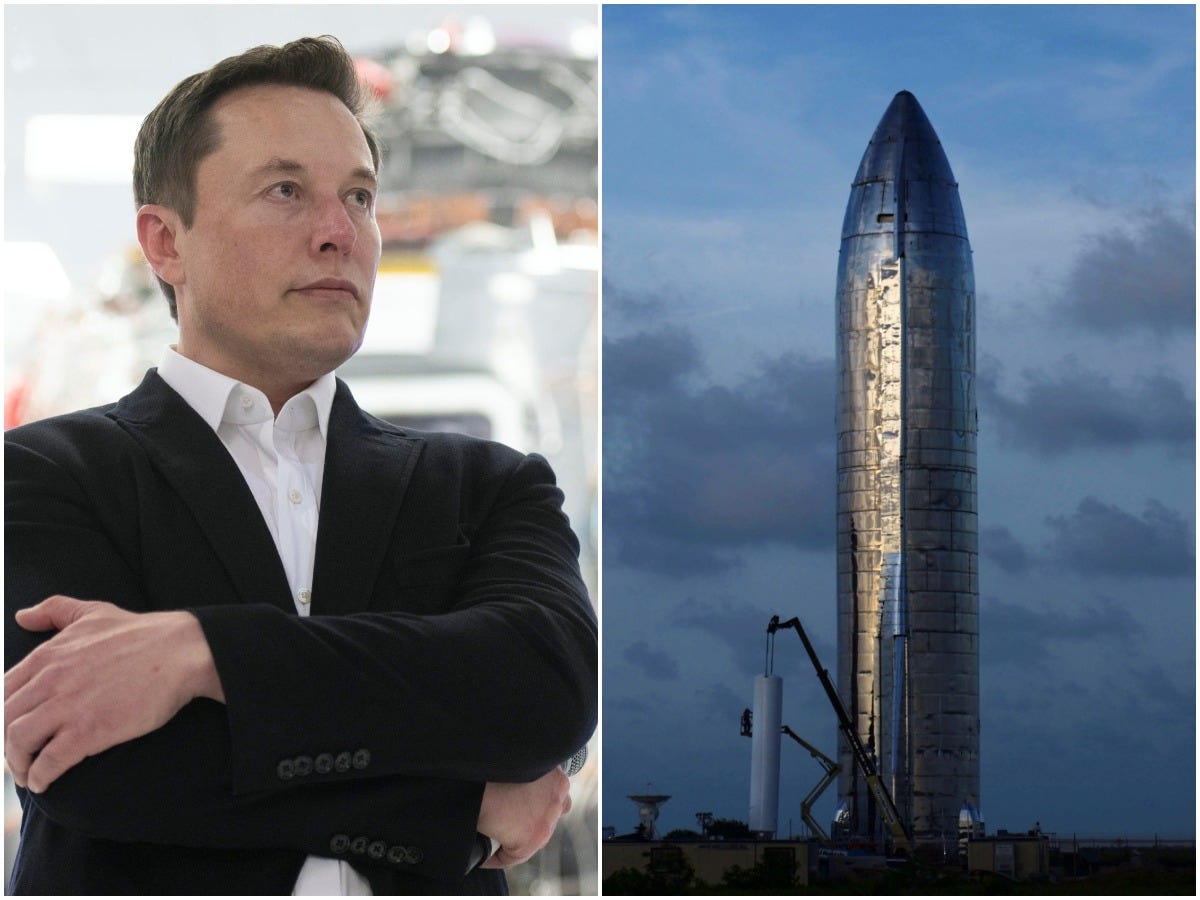
REUTERS/Callaghan O'Hare/Yichuan Cao/Getty Images
- SpaceX will land Starship rockets on Mars "well before 2030," Elon Musk tweeted.
- Musk's tweet came in response to an article about Europe lagging behind SpaceX in the space industry.
- Musk previously said SpaceX could land humans on Mars by 2026, but experts raised doubts about this.
- See more stories on Insider's business page.
SpaceX boss Elon Musk on Tuesday said the company would land Starships on Mars "well before" 2030, and urged Europe to aim higher with its rocket technology to keep up in the space race.
His comments were in response to an Ars Technica article that said Europe would begin to focus on competitive launch systems from 2030, and that European companies were trailing SpaceX.
"SpaceX will be landing Starships on Mars well before 2030," the billionaire tweeted. "The really hard threshold is making Mars Base Alpha self-sustaining."
Musk eventually plans to build 1,000 Starship rockets and launch three of them a day to send one million people to Mars.
In the tweet thread, Musk also said Europe was "aiming too low" with its launch efforts, saying that "only rockets that are fully and rapidly reusable will be competitive."
The 387-foot-long Starship rocket is meant to be fully and rapidly reusable. The most recent three prototypes have all exploded during testing. The company is planning to launch Starship serial number 11, or SN11, this week.
Musk has thrown around various timeframes for landing on Mars, and experts previously told Insider that it may take longer than he's currently forecasting.
In February, Musk said in an interview on audio app Clubhouse that it would take SpaceX "five and a half years" for a crewed mission of its Starship rocket to reach Mars. His timeline has remained roughly the same for the past five months.
Musk said in October and December that he was "highly confident" the space company has a "fighting chance" of launching an uncrewed rocket to the planet in 2024, followed by a crewed mission in 2026.
In 2017, he predicted that SpaceX would send cargo ships to Mars in 2022, followed by a crewed mission two years later.
Experts told Insider that SpaceX only has three launch opportunities left to successfully land humans on Mars by 2026. They said if everything goes perfectly to plan, Musk could achieve his goal.
